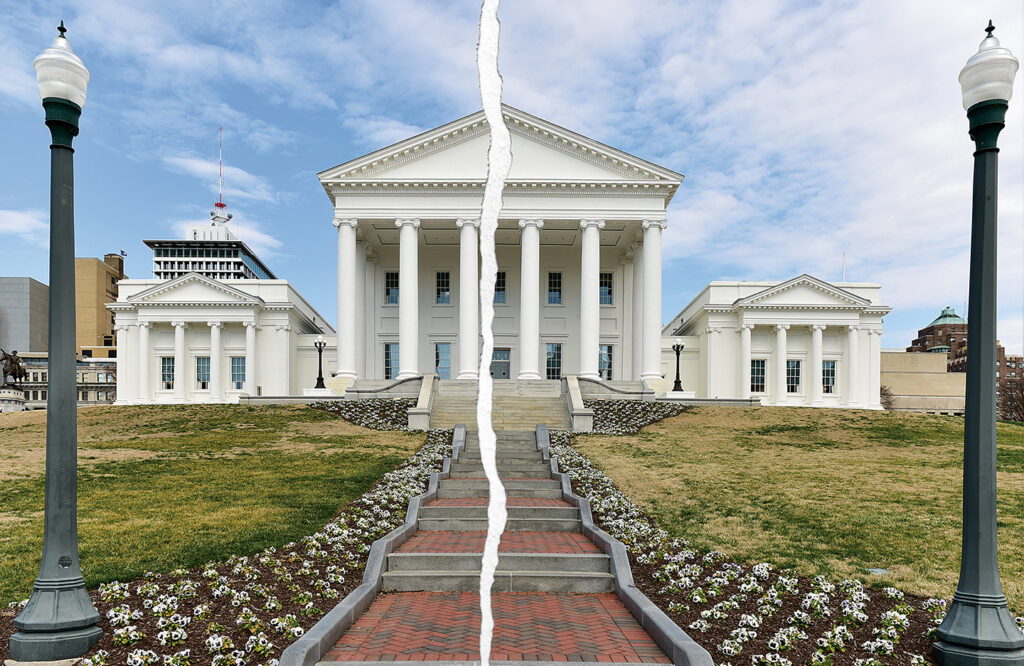
As Democrats take over the House of Delegates, what’s ahead for the Youngkin administration?
By A.J. Kaufman, Managing Editor
Critical legislative elections transpired Nov. 7 in the Commonwealth of Virginia, with all 140 seats in the General Assembly up for grabs.
Democrats came into the election with a slim advantage in the state Senate, while the Republicans controlled a narrow majority in the House of Delegates. This meant that Virginia voters weighed in on whether or not they wanted a fully divided government.
And they did.
While Republicans dominated races across Southwest Virginia, Democrats won most close contests to the north, especially in suburban Richmond. When the dust settled, Democrats regained a minuscule advantage in the House of Delegates.
Democrats flipped three Republican House districts, giving the party 51 of the lower chamber’s 100 seats. In the Senate, where Democrats defended a 22-18 majority, Republican posted a net gain, but Democrats maintained their grip on 21 seats. Democrats benefited in part from retirements, resignations and a friendlier map than in 2021, caused by redistricting after the 2020 census.
Though not on the ballot, Gov. Glenn Youngkin still figured prominently. Following his surprising statewide victory in 2021, there had been discussion surrounding his potential presidential aspirations. Those were predicated on a strong evening for Republicans, particularly a sweep of the legislative elections and attaining full control of state government for the first time in a decade.
But Republicans inability to hold the House of Delegates, nor flip the Senate, failed to give Youngkin a mandate to enact key priorities — including tax cuts, the eradication of onerous environmental mandates and expansion of innovative nuclear energy programs — previously blocked by Senate Democrats. The current administration’s clean nuclear energy agenda in Southwest Virginia has been extensively documented by the Business Journal.
Youngkin talked about those aforementioned issues, as well as education and public safety, while claiming “the Biden economy” was the biggest issue in the election. The governor gave more than 100 stump appearances for candidates and funneled millions of fundraising dollars to Republicans.
The two parties combined to pour more than $150 million into the 2023 races, a 30% increase over the last cycle, where the entire general assembly was up for election.
Youngkin acknowledged the results the following day at a press conference, and as he’s done during the past two years, vowed to reach across the aisle.
“We are a state that is very comfortable working across party lines,” the governor said. “I think this is what Virginians expect. I think they know that in a state that is so purple that we do debate, and we do argue, but they expect us to find common ground on important topics and press forward.”
Speaking in Richmond on election night, Del. Don Scott, a Portsmouth Democrat poised to become speaker of the House, claimed in part “Our candidates reflect the future of the commonwealth. They are products of the communities they’ll be representing. They are trusted community leaders.”
Compromise remains possible on issues like economic development and funding for schools and mental health. But there is unlikely to be major movement on ideologically divisive questions in Virginia, as attention shifts to next year’s national elections and the 2025 gubernatorial race.
Newly-elected delegates will be seated on Jan. 11.



